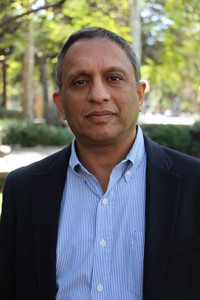Saturday, November 20 – 6:15 p.m. – 7:30 p.m. ET
(Streamed Live from Baltimore)
Decolonizing U.S. Anthropology

Dr. Akhil Gupta
President, American Anthropological Association
Professor, Department of Anthropology
Director, Center for India and South Asia (CISA)
University of California, Los Angeles
After Ferguson, after Standing Rock, after the Black Lives Matter protests, after the crisis of refugees at the U.S.’s southern border, there have been renewed calls for a racial reckoning in U.S. anthropology. The relation between the feelings of dissatisfaction on the domestic front run parallel to an unease over U.S. anthropology’s failure to adequately address militarism, imperialism, and predatory capitalism abroad. Finally, there is the fraught question of U.S. anthropology’s oversized influence within world anthropologies due to funding, publications, number of professionals, and its location within the hegemonic power of the U.S. state.
I propose that a reassessment of U.S. anthropology might fruitfully begin with some counterfactual history. How would U.S. anthropology have been different if the founding generations had conceptualized the discipline as a decolonizing project? What topics or themes might have become central to U.S. anthropology? How might our methods have been different? How would what we study, where we do research, how we do our work, what are our relations to the communities and peoples that we study, and how we assess what is “good” work, been different?
From this, it follows that to make anthropology departments more diverse, inclusive, and equitable that we need to do more than add faculty and students of color. Despite being a field whose central concept is “culture,” we have paid far too little attention to the culture of anthropology departments. Do unexamined practices of “white-norming” that shape the everyday lives of faculty and students in anthropology departments, persistently “other”—marginalize and alienate—people of color?





